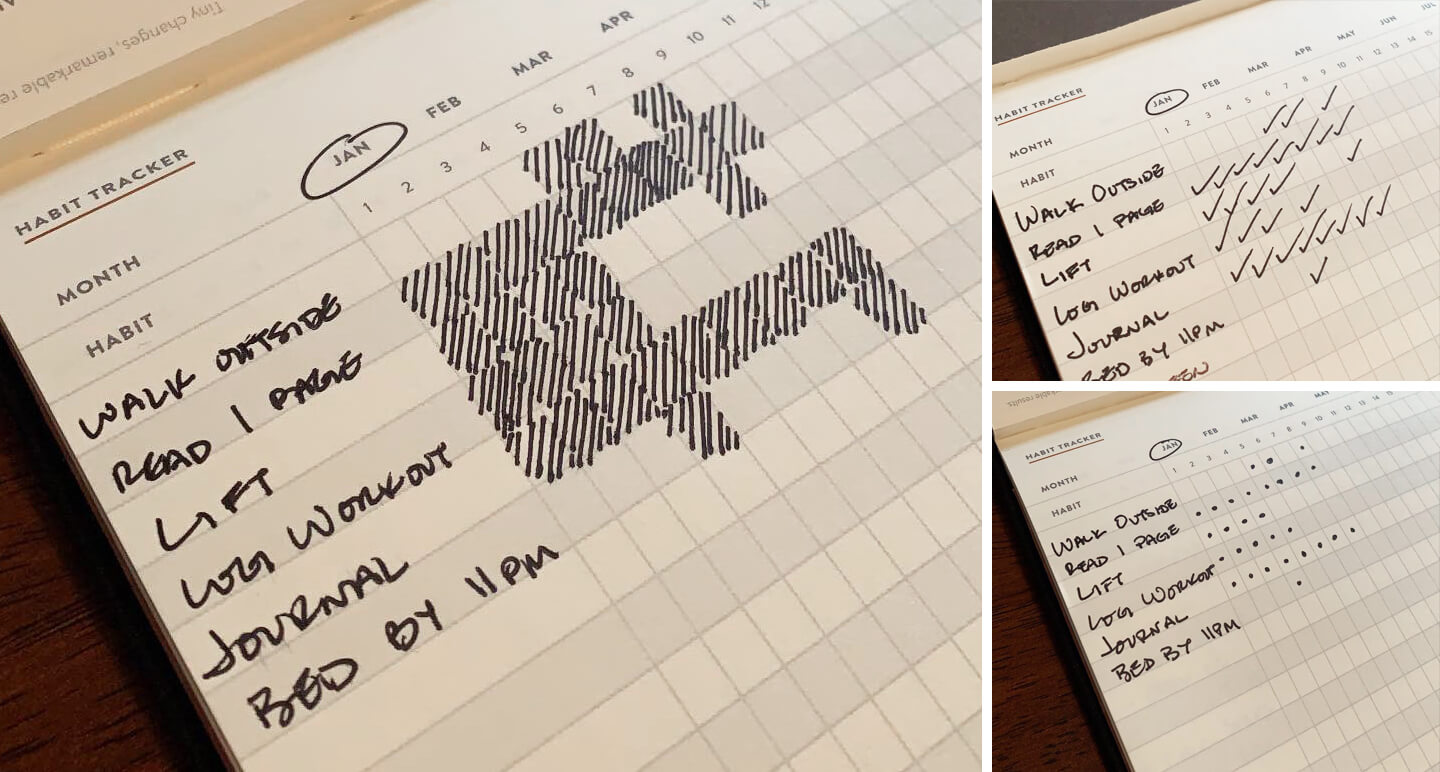Guest Blog by Emma Grace Brown

When it comes to building healthier habits, too many people decide to make huge, sweeping changes overnight. Almost inevitably, they realize that these massive lifestyle shifts are impossible to keep up and, after a few days of trying without success, they give up entirely and go back to their old ways. As you can see, this isn’t the picture of crafting an effective lifestyle change.
If you’re hoping to make a change in your life, your first step is to let go of this all-or-nothing, everything-at-once mentality. We promise: It’s holding you back. I have put together this guide with Social Work Shorts and Self Care Shorts about how to use incremental changes to point your life in the right direction:
For more helpful content, if you are a social worker or social care professional turn to Social Work Shorts your go-to source of information and obviously there are loads more self care and productivity tips here at Self Care Shorts!
Start Keeping Track

It’s hard to know where to go if you don’t know where you’re starting. That’s why it’s so important to start keeping track of your habits before you start trying to change them. You need a baseline in order to set realistic goals for yourself going forward. Give yourself a month or so to note your current habits, and use that information to inform your next steps.
There are several ways to track your routine. You can use a journal or planner to note how often you exercise, what kind of meals you tend to eat, as well as your mood throughout the day. You can also use a phone or smartwatch or fitness tracker to gauge your efforts. You can even take your tracking efforts one step further with more useful tech gadgets, such as a quality pair of headphones. They can come in handy when following along to a fitness video on your phone or listening to your favorite workout playlist.
No matter what you use to track, remember to take note of both the actions you take and how you feel during the day. For example, you might notice you tend to have more energy after a walk, or feel more anxious on days when you have two cups of coffee. Recognizing these patterns helps you define your goals and gives you solid proof that the choices you make really do matter.

Pick One Small Change
Your first step should be to identify one small, effective change you can make based on the baseline habits you’ve noticed. Let’s come back to the walking example. If you notice you have more energy after your walks, you might decide to try and take a walk every day. Keep it simple – avoid adding specifications about the amount of time or distance you have to walk. Instead, focus on a “no zero days” mentality. If you walk around the block that still counts. Focus on consistency, not perfection.
Once you’ve kept up with this new habit for at least a month, you can start thinking about the next habit you’d like to build. However, it’s important that you use the notes you’ve taken since you added the new habit to define your next steps. After all, if you no longer feel anxious on two-coffee days now that you’re walking more, maybe having two cups of coffee isn’t a problem anymore.
Practice Self-Compassion
Changing habits isn’t easy, even when you give yourself the best start by going small and simple. That’s why it’s extremely important to go into goal-setting periods with self-compassion. If you mess up or fall behind, that’s not a sign of failure. It might be a sign that you need to make things simpler for yourself or try a different habit first, but it doesn’t close a door. Give yourself the space and time you need to grow, and remember that slow progress is still progress.

The all-or-nothing mentality will always hold you back. Learn how to let go of it and, instead, focus on honouring the gradual, back-and-forth nature of change. You might just find that shifting your worldview brings your goals closer than ever before.
You can find more from Emma on her own website here
Photo Credit: Pexels
